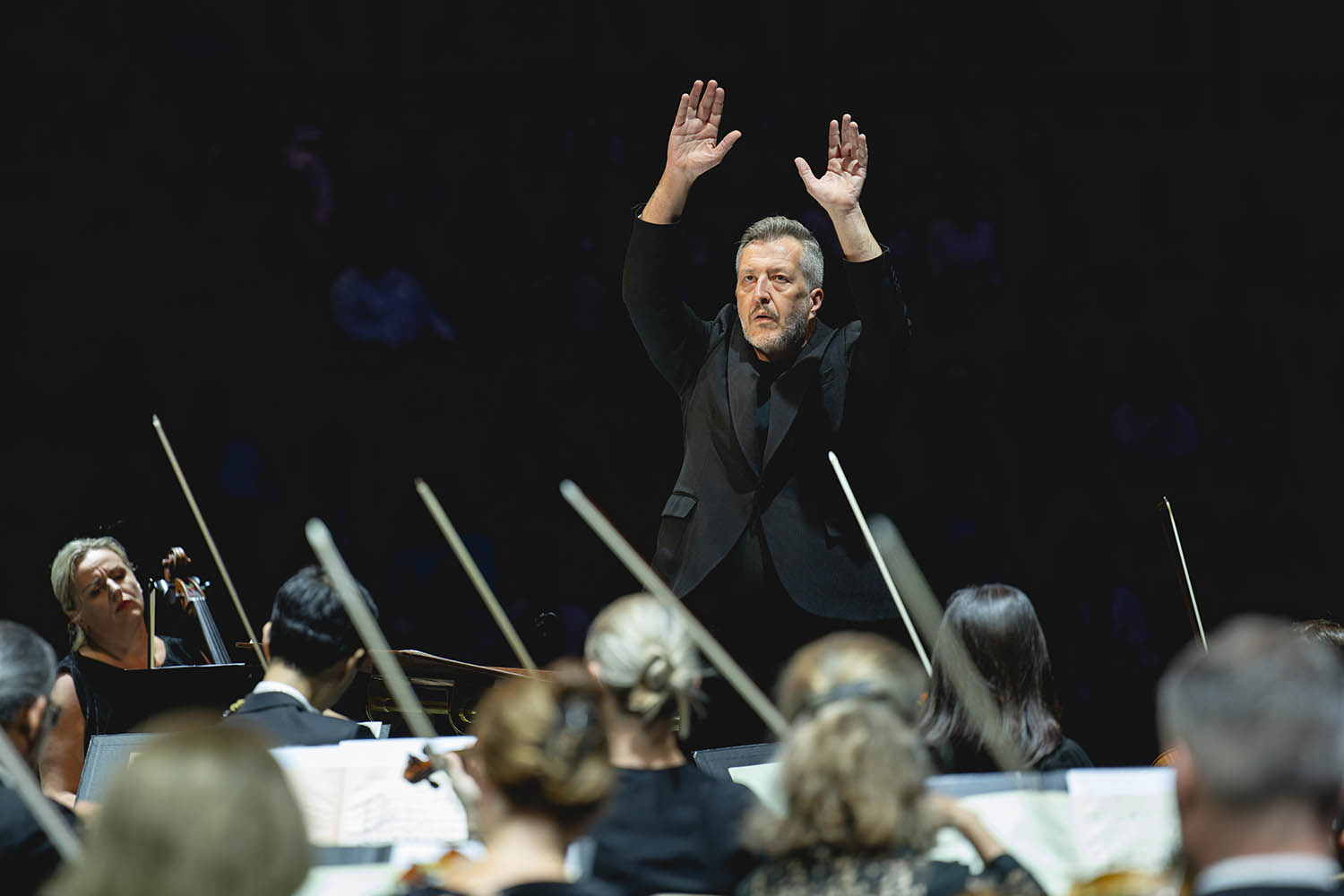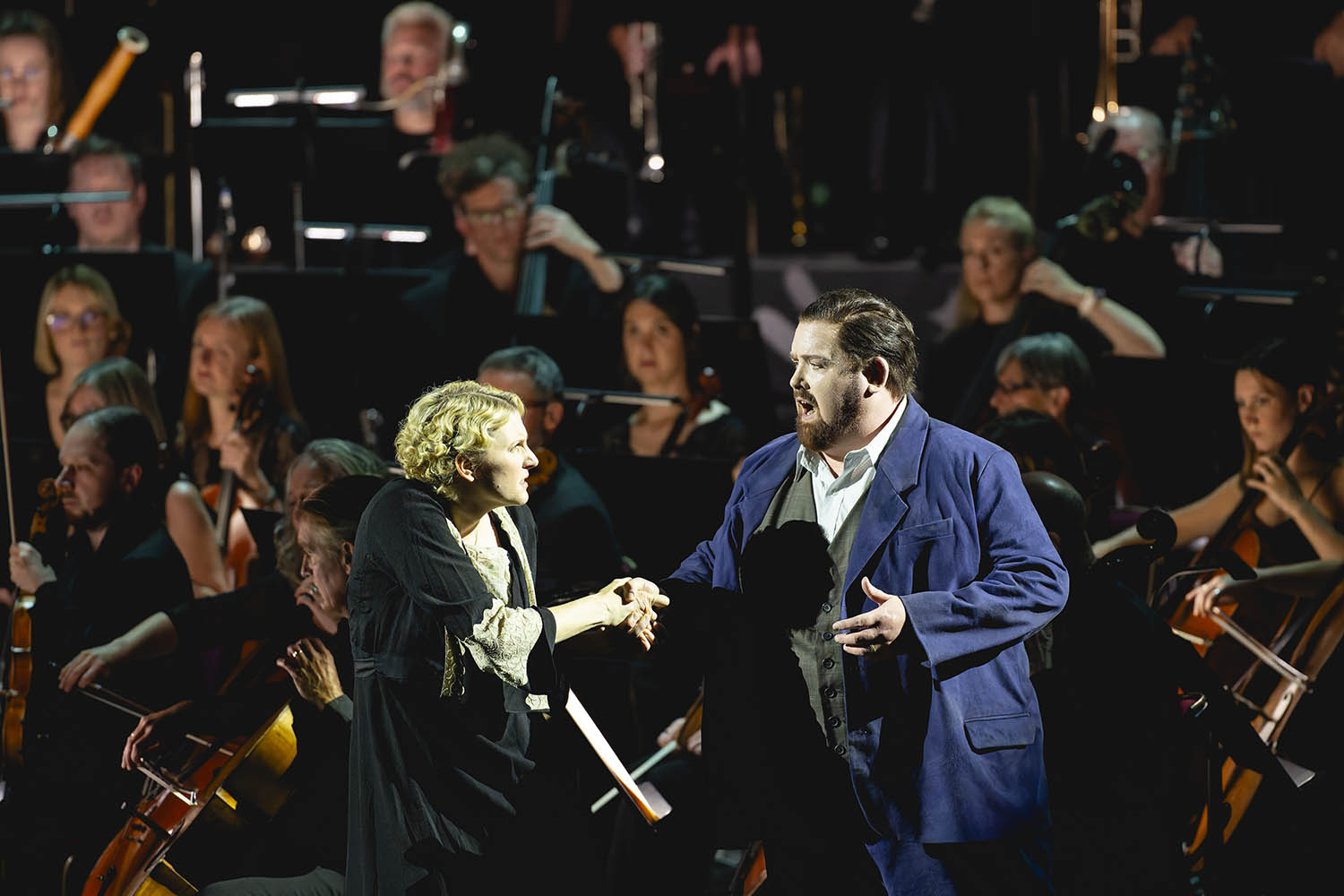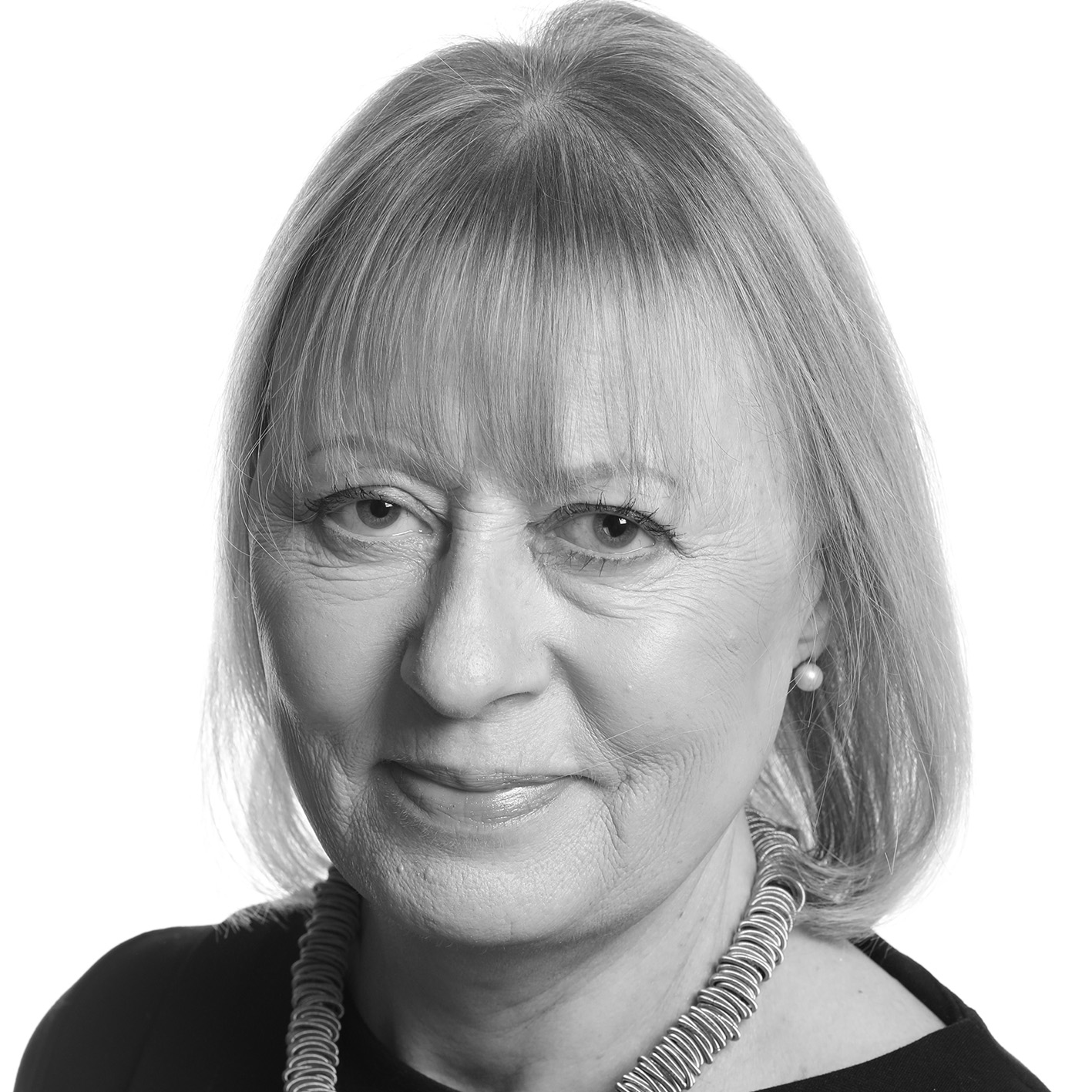“Cacophonous and pornographic.” Complaints about opera are usually more bland. This was how the Soviet newspaper Pravda ridiculed Shostakovich’s Lady Macbeth of the Mtsensk District, in an editorial in 1936, days after Stalin had attended a performance. Overnight the composer became an enemy of the people, a suitcase packed, in fear of arrest. The whole shaming episode, famous in the annals of 20th-century cultural history, always worth retelling, was just the start of Shostakovich’s long years of denunciation. It has shaped our response, directly or implicitly, to this “tragedy-satire”, which was performed at the BBC Proms last week after an interval of 19 years.
Back in 2006, an all-Russian performance was given by the Mariinsky Theatre, conducted by Valery Gergiev. The world has changed. Since the invasion of Ukraine, Gergiev, once a UK star visitor, now too closely associated with Putin, has been barred from most European stages, his St Petersburg company unwelcome. Monday’s semi-staging, sung in immediately audible English (in David Pountney’s translation) by a predominantly British cast, united several forces: BBC Singers, the Chorus of English National Opera, brass players of ENO and an expanded BBC Philharmonic. Ruth Knight directed, with ingenuity and wit. The orchestra’s chief conductor, John Storgårds, somehow found the brain-body coordination to keep all in check.
Stalin’s corkscrew punch – he was assumed to be behind the Pravda article – all but felled the 29-year-old composer’s operatic ambitions. He abandoned plans for a four-part cycle, on the model of Wagner’s Ring. What on earth might that have been like? We can only regret the loss. Lady Macbeth is based on a short story by Nikolai Leskov. A bored merchant’s wife, Katerina Ismailova, takes a sleazy lover, Sergey, and kills her lecherous father-in-law with poisoned mushrooms. The lovers then murder her husband and leave him in the cellar, where he rots malodorously. There’s a rape scene and some pounding orchestral sex with priapically whooping trombone action. The satire revolts, shocks and glitters. Katerina’s desire for freedom is key, but her sad longing for love is even greater. The end is raw.

‘Analytical precision’: Thomas Adès conducts the BBC Symphony Orchestra in Tuesday’s Prom
The principal soloists in this 12-strong cast were judiciously chosen, starting with Amanda Majeski in the title role. This American soprano, making an outstanding Proms debut, first won attention here in Janáček’s Katya Kabanova (title role, 2019) at the Royal Opera House. In Shostakovich’s score, rigid with straight lines and rhythms that pulsate with military order, Katerina alone has lyricism and fluidity. Majeski cut through the attendant tumult in this vast and noisy opera with cool, high-note clarity.
Shostakovich’s instinct for theatre is evident in every bar. Nimbly he shapes character through instrumentation, vocal line, harmony. Katerina’s father-in-law, Boris (Brindley Sherratt, deliciously unsavoury), sings a clumsy waltz, made risible with oompahing bassoon and trombone. The love rat Sergey, winningly sung by a bewigged Nicky Spence, has music of cheap, honeyed sweetness. As the betrayed husband, Zinovy, tenor John Findon excelled at every brief opportunity in this small role. Supporting cast, chorus, brass band and, above all, the BBC Philharmonic, triumphed. A Proms season highlight.
On Tuesday, the BBC Symphony Orchestra made their 10th appearance of the season, conducted by Thomas Adès. Once again these players proved their dexterity at mastering anything put in front of them. Gold-standard sight-reading is only part of it. Equally impressive is a willingness to engage with new works that might make unorthodox technical demands. A magic-and-nature programme framed by Sibelius – his The Swan of Tuonela and music from The Tempest – included Gabriella Smith’s Breathing Forests, a slightly overextended plea for biodiversity. For the first performance, in Los Angeles in 2022, Smith made a video accessible by QR code for the violins – a first? – to demonstrate the tricky bowing contortions required. The BBC players made it look easy.
The wildfires of California, where Smith (b.1991) grew up, were her starting point. She conjured, imaginatively and brilliantly, every woodland rustle, buzz and cry of terror. The soloist, James McVinnie – the piece was written for him – provided deep chordal undertows and frantic, rapid-note toccatas on the mighty Albert Hall organ. Adès, who conducts with analytical precision, never missed a detail. His own Five Spells from The Tempest (2003, arr 2022), drawing on his opera, traced Shakespeare’s narrative from opening storm to Prospero’s farewell. Each movement gleamed, magical, delicate and rich. At the end, the percussionist slowly rotates a geophone, a drum filled with thousands of lead pellets (invented by Olivier Messiaen), also called an ocean drum. The mysterious swishing created an ebb and flow, sea on shore, growing ever more distant: Prospero sails away leaving the remote isle to return to nature once more.
Newsletters
Choose the newsletters you want to receive
View more
For information about how The Observer protects your data, read our Privacy Policy
Photographs by Andy Paradise

